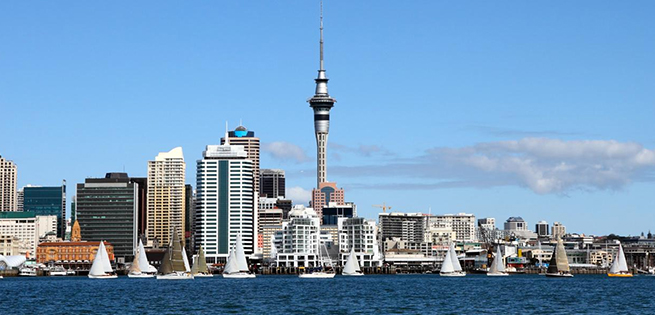Capping the number of international students entering the country to 5000 should be scrapped in light of Wednesday’s border announcement, says Universities New Zealand.
The Government will open the border to vaccinated Australian tourists from 11.59 pm (GMT+13) on April 12, while tourists from visa-waiver countries like the United States and the United Kingdom will be able to arrive from 11.59 pm (GMT+13) on May 1.
However, the number of international students who can apply to study from April 1 remains limited to 5000 for the school, private and tertiary sectors.
The 5000 places have been allocated as follows:
- Universities – 1450 (29 per cent).
- Te Pūkenga (16 polytechs) – 700 (14 per cent).
- Schools (year 9 and above) – 1000 (20 per cent).
- Private Training Establishments (PTE) – 850 (17 per cent).
- English Language Schools – 1000 (20 per cent).
Before the pandemic, the international student sector was worth almost $5 billion a year, making it New Zealand’s fifth-largest source of export revenue.
Chris Whelan, chief executive of Universities New Zealand, said the eight universities “could have easily filled the 5000 places on their own” and said the limit should be scrapped.
“A cohort of 5000 students are being allowed in, to arrive for about the start of semester 2 this year, so July and August,” he said. “We would like to see that 5000 expanded to any students that we can get here for the second semester.”
Borders will open to the rest of the world in October, but Whelan said that should be brought forward to allow international students to enter.
“International students are of significant value to New Zealand, we should be gearing up and able to prioritise them. These are people who are net promoters for New Zealand long term. They come back as tourists, they trade with us, they will often end up in academic roles. We get access to some of the best and brightest around the world because of it.”
Mark Oldershaw, chief executive of Wellington polytechnics Whitirea and WelTec, agreed that now was a prime opportunity to scrap the limit on students.
About 1200 international students were studying at the institutions before borders shut in 2020. That reduced to about 120 students by 2022. Currently, only 700 spots were reserved across the 16 polytechnics in New Zealand under Te Pūkenga.
“That’s not going to shift the dial at all,” Oldershaw said. “I think international students bring a lot more diversity to our campus, it makes the whole experience a bit richer from a student’s perspective.”
In 2019, 65,165 international students from the top three main source markets – China, India and Japan – studied in New Zealand, according to Education New Zealand, with 22,216 enrolled full-time at universities.
International students make up a considerable portion of all university enrolments – 16 per cent in 2017 – and pay much higher fees. For example, the annual cost of the bachelor of design course at the University of Auckland is $8325* for domestic students and $37,984* for international students.
Ministry of Education group manager international Shelley Robertson said the allocation of the 5000 places was based on the proportion of international students who were attending each type of education provider pre-Covid in 2019.
“This decision was made jointly by the Minister of Education and the Minister of Immigration,” she said. “Each sub-sector will have its own allocation process to determine the allocation of places amongst education providers, the Ministry of Education and Education New Zealand is working with sector peak bodies to finalise this process.”
“There has been no change to student visa arrangements,” she said. “Prospective students that qualify as visa-waiver travellers and existing holders of valid visitor visas who wish to study short courses (up to 12 weeks) will benefit from the changes to bring forward step four of Reconnecting New Zealand.”
Tertiary Education Union national secretary Sandra Grey said the border reopening wouldn’t have a huge immediate impact on the union’s members because the academic year had already started and the reintroduction of international students was being carefully managed by institutions and the government.
“For many institutions, it won’t be until next year when big groups of overseas students come back,” she said. “What we don’t want is a great big rush causing stress on staff and learners.”
The ability to travel would be a bonus for international scholars – a collaboration among international institutions was an important aspect of academic research, she said.
*Fees shown are indicative and estimates only.
Legal Disclaimer: This article is provided for information purposes only.
Read all the Latest News here. Follow us on Facebook, Twitter, Instagram, and LinkedIn.


















Add comment